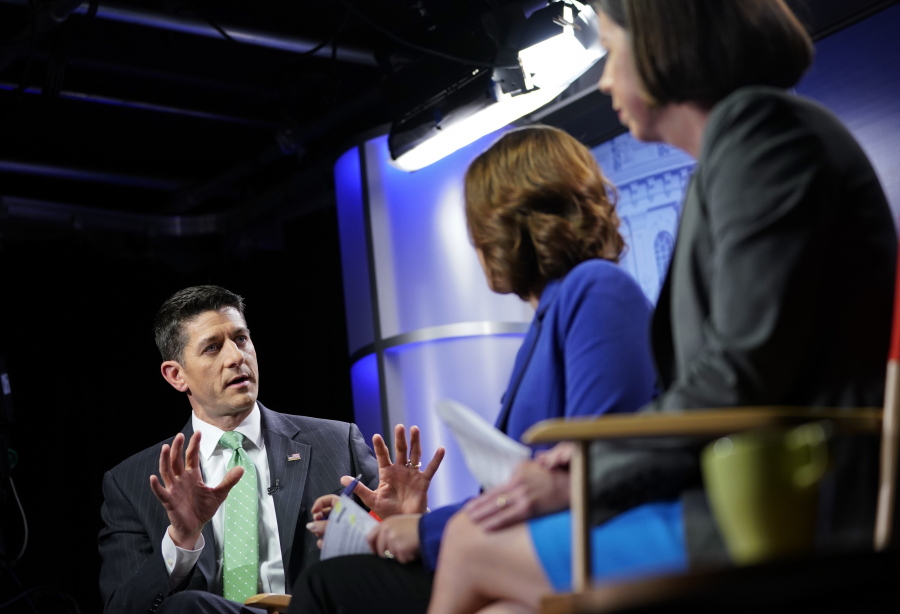WASHINGTON — House Speaker Paul Ryan backed off months of promises that the Republicans’ tax plan won’t add to the nation’s ballooning deficit, declaring Wednesday in an AP Newsmaker interview that the most important goal of an overhaul is economic growth.
Asked twice whether he would insist the emerging tax plan won’t pile more billions onto the $20 trillion national debt, Ryan passed up the chance to affirm that commitment. GOP leaders made that “revenue neutral” promise in a campaign manifesto last year and many times since.
“We want pro-growth tax reform that will get the economy going, that will get people back to work, that will give middle-income taxpayers a tax cut and that will put American businesses in a better competitive playing field so that we keep American businesses in America,” the Wisconsin Republican told Associated Press reporters and editors. “That is more important than anything else.”
Ryan’s comments signaling possible retreat on a core GOP commitment came amid quickening action on taxes, which Republicans view as their last, best chance to notch a significant accomplishment to take to voters in the 2018 midterm elections following the collapse of their Obamacare repeal drive. Yet even as President Donald Trump hunted for Democratic votes for a plan that’s not yet taken shape, and GOP leaders laid out an aggressive timetable to lawmakers, significant hurdles remained.



